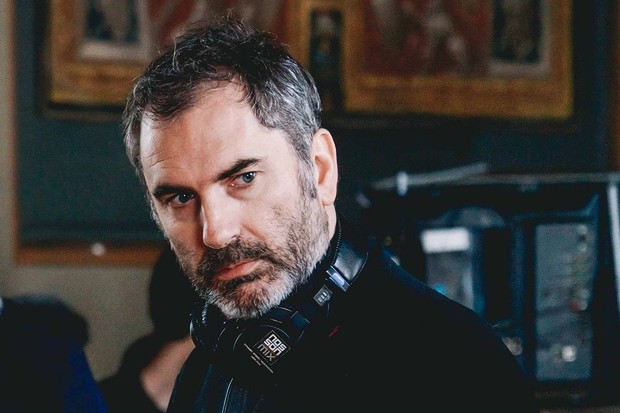Xavier Giannoli • Director
"An elusive enigma"
- Xavier Giannoli decrypts The Apparition, an immersion into a canonical investigation starring Vincent Lindon and Galatea Bellugi

The Apparition [+see also:
film review
trailer
interview: Xavier Giannoli
film profile] is the seventh feature film by Xavier Giannoli, a filmmaker known for Eager Bodies in 2003 and previously selected twice in competition at Cannes (The Singer [+see also:
film review
trailer
film profile] in 2006 and In the Beginning [+see also:
film review
trailer
film profile] in 2009) and twice at Venice (Superstar [+see also:
film review
trailer
interview: Xavier Giannoli
film profile] in 2012 and Marguerite [+see also:
film review
trailer
interview: Xavier Giannoli
film profile] in 2015). We met up with the director a few days before the release of his film in France, which is due to be distributed by Memento.
Cineuropa: What attracted you to the subject of canonical inquiries in The Apparition?
Xavier Giannoli: I knew they existed. I’ve read articles and books about them. I knew it was a closed, mysterious and somewhat secretive environment, and I was excited by the idea of finding out exactly what was involved in a journalistic or police investigation into a so-called supernatural phenomenon.
What research did you do?
I had to unearth some concrete realities, to accumulate a fair amount of material, facts and testimonies in order to anchor history and fiction in some sort of document-based reality. Canonical investigations are carried out rigorously and discreetly. I was fortunate enough to have access to interrogations with people who claim to have seen an apparition. In this instance, it's the bishop of the local region who decides whether or not to proceed. If he thinks there’s worthy cause, a canonical investigation is launched, and various individuals are brought in, such as journalists, doctors, priests and theologians. Investigations are then conducted into these events to try to establish whether or not there’s any truth in the statement.
Why did you choose a war correspondent as the main character?
A correspondent’s role in modern society is to return with images and evidence. Suddenly, this character meets his limit and finds himself immersed in a universe where being able to describe something and provide evidence of it are not the most important things, and rightly so. This opened the investigation up to another dimension. The character, in addition to facing reality, also had to open himself up to an inner world. All the war correspondents I have met have been affected by the madness of the world, you can see it in their eyes. For me, it was interesting to see this sort of character come into contact with an 18-year-old girl who is indisputably sincere, who talks to him about love, understanding, and who has a sort of modesty and sensitivity about her.
You've also added an almost police-like suspense to the film.
This man sticks around because he’s touched by this modern young woman, by her emotion, sincerity, modesty and dignity. We want to believe her, but at the same time it's implausible, and a rational mind like that of a war correspondent has a hard time imagining it. The hunt for the truth is pivotal. And with any investigation comes suspense.
Have you been careful to maintain a certain neutrality in the reproduction of the religious environment surrounding the so-called supernatural phenomenon, especially the "business" side to it.
I tried to be fair. There are a lot of things that we tend to caricature when it comes to apparitions, "there’s a business, so it's all a lie to make money," "it’s a form of madness, of idolatry.” But there can also be something touching, sensitive and very deeply honest about it. The fact that people jump on it afterwards for whatever reason is just the same as political ideas or financial products. It’s still a human endeavour so it can take slightly odd routes. In the film I simultaneously try to show the ‘business’ side to things, that there can be a sort of idolatry surrounding any religious phenomenon. But at the same time, I hope that people understand that wasn’t the way I approached the film or what I was aiming for from a critical point of view. I didn’t want to remain in the comfort of the type of satire that I hate, adopting a space in which to make fun of things and people. The most important thing in the film is the emotion of this girl who is resolutely turned towards God and who is honest. She is an elusive enigma for the journalist. Either she's lying –which is something we have to ponder throughout the film. And if she's lying, her sincerity and the emotion in her eyes is fascinating. How do you reach such a point of self-persuasion that you can lie about something so important? Or she's not lying, and we are faced with one of the greatest mysteries of humanity. I told myself that in both cases, this investigation would force my character to come face-to-face with something extraordinary.
(Translated from French)
Did you enjoy reading this article? Please subscribe to our newsletter to receive more stories like this directly in your inbox.
















